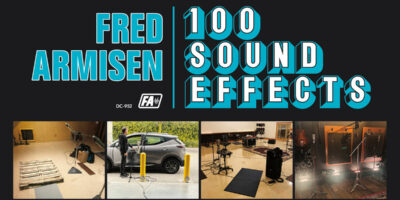Genre: Pop-Punk
Favorite Tracks: “Two Bux,” “Halos,” “Ezra and Marla”
There’s something extremely bold about Remo Drive’s brand of emo. Or maybe it’s pop-punk. At this point, they’re synonymous, and that’s in large part due to these guy’s core influences: “emo’s holy trinity”—each hypostasis with their own easily acronym-izable name—Fall Out Boy, My Chemical Romance, and Panic at The Disco!. The sub-genres became conflated beyond repair. Of course, fandom infighting occurred and what’s pure and what isn’t will remain a ceaseless debate. But I digress. These days, it’s a relatively safe bet in attempting to channel the mathiness of American Football or the baroque heft of Sunny Day Real Estate. Those were (and are) the critical darlings. What’s ambitious is channeling those above “sell-outs” and managing to capture the best of their boisterousness and theatricality. This was what made Remo Drive’s debut, GREATEST HITS, such a breeze. Unfortunately, on their sophomore release, NATURAL EVERYDAY DEGRADATION, there’s a fatal eagerness: the band takes on the tacky maximalism that defined much of their forebears’ late periods and fails to improve on it.
It seems Remo Drive decided to skip the transitional album—something along the lines of a FROM UNDER THE CORK TREE—and go straight for the INFINITY ON HIGH. There’s certainly something to be said about their resolve, that even after losing drummer Sam Mathys, they’re going to push themselves. And It’s not entirely for nothing either. Mid-album highlight “Ezra and Marla” actually sees a successful dalliance with trumpets and it’s rare that I ever find any dalliance with trumpets successful. They don’t overpower or distract; rather, they reinforce the melodrama of the song’s narrative: the demise of a relationship. Following this is the gloriously volatile “Halos” as riffs drop with newfound clang but then swing with ‘80s cock-rock-inspo under the chorus. Before this, the fretwork first strings out on opener “Two Bux,” but accordingly settles to let lead singer Erik Paulson vent, “Lust and greed, they freak me out / But I see the allure.” His upward croon on the chorus here as he sings, “Upset if I break the rules,” or “we’re falling out of love / love, ooh, love,” on the succeeding “The Grind,” recalls Patrick Stump in his prime and Brandon Urie at his least annoying.
Part of what is so loveable about Remo Drive is Paulson’s protean timbre. Whereas Stump had (and needed) Pete Wentz to provide a nice contrasting hoarseness, Paulson can do raw, gnarly emoting all by himself. On both the band’s 2015 single “Breathe In” and GREATEST HITS track “Trying 2 Fool U,” he’s shown he can shred his vocal box if he wants to. Here, a perfect opportunity arises too near the end of “Mirror,” as Paulson cries, “And I can’t see a mirror without wondering how the hell I ended / up so caught up inside my head that I can’t get out.” I just want him to fuckin’ scream right there—it’s lyricism worthy of yawping and he holds back on us.
The uniformity on NATURAL EVERYDAY DEGRADATION, in terms of both instruments and vox, leads me to believe there’s not much fun being had. While everything sounds bigger, it’s not heavier. Save for the aforementioned moments, much of the interstitial guitar work is boring, aligning most closely with straightforward alt-rock, and it lacks the excitement I know Remo Drive is capable of inducing. On closer, “The Truth,” the guitars’ peal in the coda is unceremoniously cut short, rendering the finale little more than a squib. Really the mixing overall sounds tinnier, and I can’t help but get the feeling this album was rushed. We would’ve and could’ve waited longer, guys! Sometimes a band needs more than two years to follow-up their debut, especially one as great as GREATEST HITS. Let’s just hope that title doesn’t prove to be totally true.















Comments